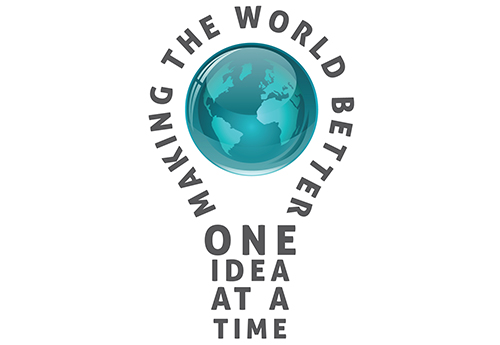 The Sustainability Symposium held by the Department of Engineering and Physics has become an important part of Scholarship and Creative Arts Days (SCAD) at Elizabethtown College. This year, Tuesday, April 21, is the fourth year for the Sustainability Symposium. High interest in sustainability expressed by students of the Engineering and Physics Department inspired the creation of the event. Faculty members in this department support the promotion of sustainability and aim to raise the College’s sustainability profile.
The Sustainability Symposium held by the Department of Engineering and Physics has become an important part of Scholarship and Creative Arts Days (SCAD) at Elizabethtown College. This year, Tuesday, April 21, is the fourth year for the Sustainability Symposium. High interest in sustainability expressed by students of the Engineering and Physics Department inspired the creation of the event. Faculty members in this department support the promotion of sustainability and aim to raise the College’s sustainability profile.
In the past, projects included the design of a hybrid solar tracker, a high tech sustainable house and international projects for charging communities in West Africa. This year, seniors Nathaniel Flickinger, Dustin Cramer, Matthew Frey and Brandon Harris will showcase Central Pennsylvania Food Bank Barrel Lift Assist. They designed and implemented a mechanical device that helps volunteers of the Central Pennsylvania Food Bank lift 250 pound barrels of food donations into the back of a van. Most of the volunteers are well into their 50s or 60s and have difficulty lifting the heavy barrels. The students wanted to find a solution to this problem.
“As a group we wanted to pick a topic that would help the community,” Flickinger said. “The Central Pennsylvania Food Bank does a lot for the community.”
“As a group we wanted to pick a topic that would help the community.”
Seniors Cozette Zimmerman, Matthew Jadro and Richard Meyers wanted to improve agriculture in The Gambia, West Africa. They developed their project, Compost System Design for West Africa Community Gardens from two prototype composting systems and are in the process of testing and refining those designs so the compost system can be implemented this spring. Their product will improve soil quality and crop yields in The Gambia.
Jadro chose to be a part of The Gambia team because he spent the spring semester of his sophomore year studying abroad there. He said, “This composting ‘technology’ wasn’t something I saw in use when I was there, but knowing that the country’s produce comes from its own farms, I saw it as a great opportunity for them.”
“This is important because it improves the lives of people living in The Gambia as well as gives them an opportunity to have more nutrient-rich food and the ability to grow more crops due to better soil,” Zimmerman said. “I think that this will really help them sell their crops and feed their families better food.”
The Occupational Therapy Graduate Research Symposium was started 11 years ago, before the existence of SCAD, as a way to showcase collaborative faculty-student research and scholarship. That symposium is at 5:30 p.m. on Wednesday, April 22 in Gibble Auditorium. Fifth-years Megan Tursi, Monica Loranger and Carly Stull, will present, A Comparison of Activities and Participation Across Three Cancer Types: Lung, Ovarian, and Metastatic Breast. Their research analyzes the impact of lung, ovarian and metastatic breast cancer on an individual’s daily existence in the hope to improve the quality of life of cancer survivors. They found that each type of cancer has a unique effect on a survivor’s quality of life.
“This is important because the areas of life we assessed are all within occupational therapy’s scope of practice, meaning that our profession is well-equipped to assist with the difficulties faced by individuals with cancer,” Tursi said. “Since our results found some differences between cancer types, our research also demonstrates a need for rehabilitation services specific to each type of cancer.”
Their presentation is scheduled for 6:15 p.m. to 9:00 p.m. Wednesday, April 22 in the First Floor Atrium of the Master Center for Science Math and Engineering.
Fifth-years Kimberly Cosgrove, Michelle Beebe and Laura Kleindienst present, Childhood Dietary Modifications: The Role of Mothers in Creating Healthy Habits Wednesday, April 22 from 6:15 p.m. to 6:45 p.m. in Esbenshade 362 and from 7:35 p.m. to 8:00 p.m. in Esbenshade 360. They wanted to gain a deeper understanding of a mother’s needs when raising a child who might or might not have a chronic illness. They wanted to learn about the impact dietary modifications have on routines of mothers as well as barriers that might challenge the implementation of alternative eating habits.
“I chose this topic because currently it is not addressed directly in OT and I think it would be great to be a part of expanding practice,” Cosgrove said. “It is important because currently in our society there is a large increase in chronic illness and one way a lot of people are managing chronic illness is through dietary changes.”
–by Paige Neidig, Scholarship and Creative Arts Days publicity intern

